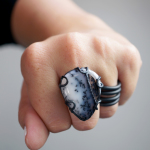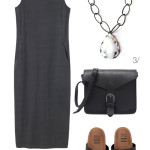
I’ve had Glenn Adamson’s Thinking Through Craft on my shelf for a few months now, but I didn’t feel compelled to open it until I read (and enjoyed) Adamson’s article on sloppy craft in the British Crafts Magazine.
While I wasn’t wholly convinced about the way Adamson often uses art as a way to frame craft, overall I thought it was a worthwhile read. Adamson describes five characteristics of craft, supplemental, material, skilled, pastoral, and amateur. I found the chapters on pastoral and amateur most interesting and relevant to me.
While reading the chapter on pastoral, I found myself thinking a lot about my own lifestyle and the type of business I want.
The chapter on amateur felt pertinent to the discussion that’s been going on online lately. This particularly struck me: “In theory, hobbyists are beneath the notice of the expert. In practice, though, the line between the two is often a blurred one. The boundary must constantly be policed, both through the power of institutions and the maintenance of skill or conceptual difficulty among individual professionals.”




I am so interested in reading this book. So I have to start by saying that I have yet to read it. Obviously you have been following the imogene discussion too and I and wondering what you think about the “policing” comment in general. A lot of people seem to police, or draw the line, based on their emotional ties to what they do, and others, maybe the institutions police based on established techniques and training. Personally I am not sure a line needs to be drawn but I am fascinated by the discussion that has erupted from people trying to draw or define their proximity to the line. Maybe it’s more of a ven diagram?
p.s. I bought one of your rings at Rare Device while I was up at Craft Con a couple of weeks ago and I LUV it.
Marie
marie,
its taken me a while to respond to your comment because I really needed to give it some thought myself.
in general, i disagree whole-heartedly with the idea of policing, but i understand where it comes from. as someone with “professional training” in jewelry (another phrase i hate) I understand the desire to want to be sure that your degree is valid. (i have both an BFA and MFA in jewelry/metals). but i’ve also seen some pretty amazing work (even amongst the old guard) by people who aren’t “formally trained”. biba shutz is a great example of this.
but etsy has clearly blurred the boundary between amateur and professional to a greater degree than ever before. so, i would say that rather than policing, there needs to be more education – to ensure that all sellers, whether amateur or pro, are creating work that won’t fall apart and selling it at a living wage. and educating the consumer on why these things cost more.
ps. glad you like the ring! wish i could have gone to craft con – i’m sure it was fun!
I actually just read this book and wrote a review on blogger, as well. I’m sure this is a bit belated for you, but it was nice to see that another read it. I actually came across your review by doing a search “thinking through craft”. I wonder tho, and I hope you wouldn’t mind sharing this info, how did you get the address to come up with dashes between the words? Your entry came up on the front page of google, when i searched and I’m just curious.